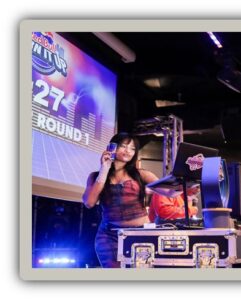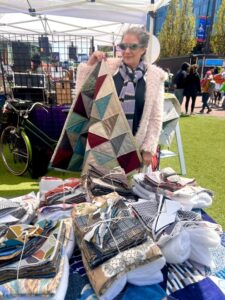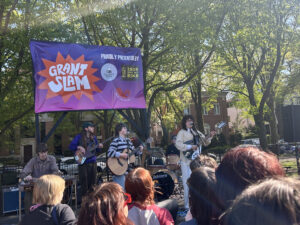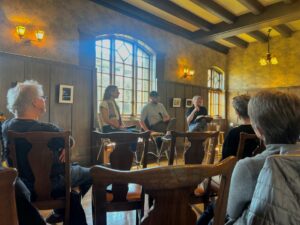Choreographer and co-founder of hip-hop and street-dance company BraveSoul Movement Kelsa “K-Soul” Rieger-Haywood shares her passion, knowledge and excitement for culture and art with those around her.
Rieger-Haywood, 47, grew up in Evanston and briefly took ballet classes as a child, though she was largely uninterested in the style. Her interest in dance was piqued during junior high when she was exposed to social dance spaces. She recalled going to parties during the “golden era of hip-hop,” which she recognized as the late ‘80s and early ‘90s, where she was introduced to the culture of hip-hop dance.
As a young, up-and-coming dancer, she had a strong interest in understanding the dynamics of racism and local social justice issues that surrounded the predominantly Black dance community that she was growing up in.
“A lot of white people in that community were very progressive, but I could see that there was deeper stuff going on,” Rieger-Haywood said. “I was always aware of my whiteness in Black social dance spaces, and that became an identity that I had as a white girl.”
The Chicago-born freestyle and street type of dancing known as “house” had an impact on Rieger-Haywood and her freedom.
“I can remember having these experiences of feeling like something outside of myself was moving me,” she said.
She was inspired by and began to collaborate with hip-hop and house dancers such as Desmond ‘Desi’ Stewart, Gerald Preston, David Green, Boogie McClarin, BRAVEMONK and Jason Yee. Traveling and being a part of social dance spaces is what solidified her interest in watching and working with professionals.
“I feel like if you are dancing authentically and feeling it to house music, then you are dancing house,” Rieger-Haywood said.
Rieger-Haywood met her husband of seven years, Daniel “BraveMonk” Haywood, through the dance scene. The two met over 20 years ago as dance partners with big dreams of starting their own dance company and traveling. They co-founded BraveSoul Movement hip-hop and street dance company and their relationship progressed beyond business partners.
Rieger-Haywood continues to use house dance as a way to convey the spectrum of her femininity and is able to embrace that diverse identity through performing freely. The free nature of the dance style allows for a range of representations of self — whether that be soft, hard, masculine, feminine, etc. She found a sense of spirituality through the culture of house music and dance, along with gaining spiritual inspiration from other dancers.
“There’s a sense of spirituality in house spaces,” she said. “You can hear it in the music.”
Rieger-Haywood encouraged those interested in hip-hop to engage in workshop classes, visit diverse social dance spaces and to listen to music that helps you to move naturally.
“House feels like my big home,” Rieger-Haywood said.








Be First to Comment